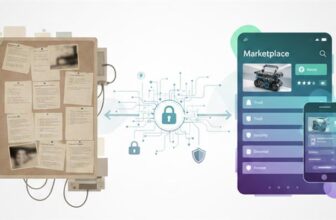
THE IMPACT OF ARTIFICIAL INTELLIGENCE ON THE FUTURE OF WORK
Artificial intelligence (AI) which is a branch of computer science, focuses on the development of intelligent machines that can perform tasks typically requiring human intelligence, such as visual perception, speech recognition, decision-making, and language translation. AI systems are designed to simulate human cognitive functions, learn from data, and adapt to new situations.
It is of no doubt that AI technology is rapidly advancing and being applied in various domains, including healthcare, finance, transportation, and entertainment. Though AI has the potential to greatly improve efficiency, productivity, and innovation, there are also concerns about ethical issues, privacy, bias, and the impact of AI on society and the future of work. It is important for stakeholders to address these challenges and ensure that AI is developed and deployed responsibly for the benefit of society.
Some of the key concepts and techniques in the field of artificial intelligence, which has helped in the advancement and improvement in the productivity, innovation and growth of firms and other domains are;
Machine learning: Machine learning is a subset of AI that involves developing algorithms and statistical models that allow computers to learn from and make predictions or decisions based on data. Common machine learning techniques include supervised learning, unsupervised learning, and reinforcement learning.
Deep learning: Deep learning is a subset of machine learning that uses neural networks with many layers to extract features from data and make predictions. Deep learning has been particularly successful in tasks such as image and speech recognition.
Natural language processing (NLP): NLP is a branch of AI that focuses on enabling computers to understand, interpret, and generate human language. NLP techniques are used in applications such as chatbots, sentiment analysis, and language translation
Computer vision: Computer vision is a field of AI that enables computers to interpret and understand visual information from the world, such as images and videos. Computer vision technology is used in applications like facial recognition, object detection, and autonomous vehicles.
Robotics: Robotics is an interdisciplinary field that combines elements of AI, machine learning, and engineering to design and build autonomous machines that can perform tasks in the physical world. AI-powered robots are used in industries such as manufacturing, healthcare, and logistics.
The impact of artificial intelligence on the future of work which is a complex, dignified yet evolving topic has the potential to greatly transform the nature of work and employment in various ways:
1. Automation: AI has the ability to automate repetitive and routine tasks, leading to increased efficiency and productivity in many industries. This can result in job displacement for workers who perform these tasks, but it can also create new opportunities for higher-skilled jobs that require critical thinking, problem-solving, and creativity.
2. Job creation: While some jobs may be at risk of automation, AI also has the potential to create new types of jobs and industries. For example, the development and maintenance of AI systems, data analysis, and human-machine collaboration are areas that are expected to see growth in the future.
3. Skills development: The rise of AI technology will require workers to acquire new skills and adapt to new ways of working. Continuous learning and upskilling will be crucial to remain competitive in the job market.
4. Workplace changes: AI technology can streamline business operations, improve decision-making processes, and enhance customer experiences. This may lead to changes in workplace structures and dynamics, such as remote work opportunities, flexible hours, and new forms of collaboration.
5. Economic impact: The widespread adoption of AI technology can have a significant impact on the economy, influencing job creation, income distribution, and overall productivity levels. It is important for policymakers and organizations to consider the social and economic implications of AI in shaping future work environments.
Overall, the impact of artificial intelligence on the future of work is likely to be profound, reshaping the way we work, the skills we need, and the opportunities available in the labor market. It is important for individuals, businesses, and governments to adapt to these changes and leverage the potential benefits of AI technology while addressing any challenges that may arise.
ADVANTAGES
Artificial intelligence (AI) offers a wide range of advantages for the future of work, enhancing productivity, efficiency, and innovation in various industries. Some of the key advantages of AI on the future of work include:
1. Mechanization: AI technology helps in the application of technology, programs, robotics or processes to achieve outcomes with minimal human input and also freeing up human workers to focus on more strategic, creative, and high-value tasks. This can lead to increased productivity and efficiency in the workplace.
2. Data analysis: AI algorithms can process and analyze large volumes of data at a speed and scale that surpass human capabilities. This enables organizations to extract valuable insights, make data-driven decisions, and improve business processes.
3. Improved decision-making: AI systems can analyze complex data, identify patterns and trends, and provide recommendations for decision-making. This can help businesses make more informed and strategic decisions that drive growth and innovation.
4. Personalization: AI technology enables personalized experiences for customers, employees, and users by leveraging data to tailor products, services, and interactions to individual preferences. This can lead to improved customer satisfaction and loyalty.
5. Enhanced creativity: AI tools such as generative design and creative AI can assist humans in generating innovative ideas, designs, and content. This collaboration between humans and machines can foster creativity and spur new solutions to complex problems.
6. Predictive maintenance: AI-powered predictive maintenance systems can anticipate equipment failures and issues before they occur, enabling proactive maintenance and minimizing downtime. This can improve operational efficiency and reduce costs for businesses.
7. Skill development: AI technology offers opportunities for upskilling and reskilling workers to adapt to the changing demands of the digital economy. Training programs and educational resources can help workers acquire new skills and stay competitive in the future job market.
8. Workplace safety: AI-powered robots and drones can perform dangerous, repetitive, or hazardous tasks in work environments, reducing the risk of injury or accidents for human workers. This can improve workplace safety and employee well-being.
Overall, the advantages of artificial intelligence on the future of work are diverse and significant, offering opportunities for increased efficiency, innovation, and growth in the workplace. By harnessing the capabilities of AI technology responsibly and ethically, organizations can unlock the full potential of AI to drive sustainable progress and success in the digital age.
DISADVANTAGES
While artificial intelligence (AI) offers numerous advantages for the future of work, there are also several disadvantages and challenges that need to be addressed. Some of the key disadvantages of AI on the future of work include:
1. Job displacement: One of the primary concerns surrounding AI is the potential for automation to replace human workers in various industries. Tasks that are repetitive, routine, and easily automated may lead to job displacement for workers who perform these roles, particularly in sectors like manufacturing, retail, and customer service.
2. Skills gap: The rise of AI technology requires workers to acquire new skills and competencies to remain relevant in the job market. However, there may be a significant skills gap between the existing workforce and the skills needed for AI-related jobs. This can result in unemployment and underemployment for individuals who lack the necessary skills.
3. Ethical considerations: AI systems are prone to biases, errors, and ethical dilemmas that can have negative consequences for individuals and society. Issues such as algorithmic bias, privacy violations, and lack of transparency raise ethical concerns about the use of AI in decision-making processes and societal impact.
4. Dependency on technology: Overreliance on AI technology can lead to a loss of critical thinking, problem-solving, and decision-making skills among workers. Relying too heavily on AI systems without human oversight or intervention can impede innovation and creativity in the workplace.
5. Security risks: AI systems are vulnerable to cyberattacks, hacking, and misuse by malicious actors. Data breaches, system vulnerabilities, and unauthorized access to AI-powered tools pose security risks that can compromise sensitive information and disrupt business operations.
6. Disruption of industries: The widespread adoption of AI technology can disrupt traditional business models, industries, and job roles. Companies that fail to adapt to the digital transformation driven by AI may struggle to remain competitive and face financial losses or market obsolescence.
7. Social inequality: The unequal distribution of AI benefits and opportunities across different socioeconomic groups can exacerbate existing social inequalities. Access to AI technology, training, and resources may be limited for marginalized communities, widening the digital divide and perpetuating social disparities.
It is important for organizations, policymakers, and society as a whole to address these disadvantages and challenges associated with AI in the future of work. By implementing responsible AI practices, promoting inclusive and equitable access to technology, and fostering a culture of lifelong learning and skills development, we can mitigate the negative impacts of AI and harness its potential for positive transformation in the workplace.
In conclusion
Artificial intelligence (AI) is poised to significantly impact the future of work, offering advantages such as automation, data analysis, and improved decision-making. While AI has the potential to enhance productivity, efficiency, and innovation in various industries, it also raises concerns about job displacement, skills gaps, ethical considerations, and social inequality. By addressing these challenges through responsible AI practices, ongoing skills development, and inclusive access to technology, we can harness the transformative potential of AI to create a future workplace that prioritizes human-machine collaboration, creativity, and sustainable progress.







